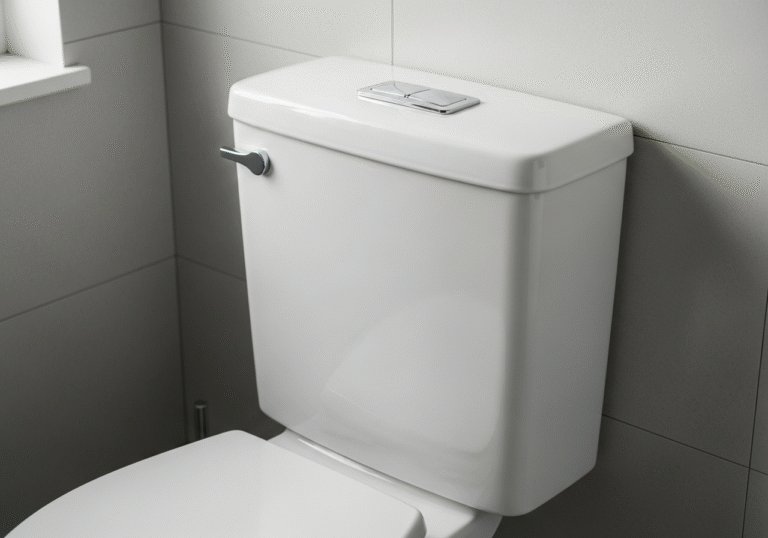Oh, the Psychology of a Clean Home after a long day! It’s not just about the visual appeal; there’s a whole psychology to why a tidy space can make us feel so good. In this dive into “The Psychology of a Clean Home: How Tidiness Affects Your Well-Being,” we’ll explore the profound effects a neat and orderly environment can have on our mental and emotional state. So, grab a comfy seat (preferably in a clean room!), and let’s get into it.
The Connection Between Cleanliness and Mental Health
A cluttered environment can often mirror what’s happening inside us. When our personal spaces are disorganized and chaotic, it can exacerbate stress and even contribute to feelings of depression. This disarray acts as a constant reminder of tasks undone, which can be mentally exhausting and lead to a cycle of procrastination and guilt. It’s as if every misplaced item is vying for your attention, reducing your mental bandwidth for more important tasks and thoughts.
A clean and organized home serves as a sanctuary from the hustle and bustle of the outside world. It’s a place where order prevails, offering a sense of tranquility and peace. This orderliness can significantly lower stress levels, providing a mental environment where creativity and positivity can flourish. The process of organizing your space can also be seen as an act of self-care, sending a message to yourself that your well-being is a priority. In this way, cleanliness in your external environment can foster a sense of inner calm and well-being.
The act of cleaning itself can be meditative and cathartic. Engaging in the physical activity of tidying up can help clear your mind, allowing you to process emotions and thoughts more effectively. This can be particularly therapeutic for individuals dealing with anxiety or stress, as it provides a constructive outlet for channeling energy and emotions.

Boosting Productivity and Focus
The presence of clutter in our immediate environment can lead to sensory overload. Essentially, every item out of place is a visual stimulus that competes for our brain’s attention. This constant competition can be draining, as our cognitive resources are split between the task we’re trying to focus on and the background noise of disorganization. It’s akin to trying to concentrate on a conversation while multiple people talk to you simultaneously.
A tidy space, on the other hand, acts like a blank canvas for our thoughts, allowing us to project our ideas and focus without external visual noise. This clarity of environment leads to clarity of thought. When our surroundings are organized, our minds are less likely to wander, and we can channel our energy more efficiently towards productive tasks. This doesn’t just mean we get more work done; it means the work we do is of higher quality because we’re able to give it our full attention.
Moreover, the act of organizing our space can also help organize our thoughts. The process of deciding where things go and categorizing items can mirror the way we structure ideas in our minds. This mental exercise can improve our ability to prioritize tasks and manage our time more effectively. As a result, not only do we create a conducive physical environment for working or studying, but we also fine-tune our mental processes to be more orderly and efficient.
In addition, a clean and organized environment can significantly reduce the time spent looking for misplaced items. This efficiency translates into more uninterrupted time for work or hobbies, further enhancing productivity. It creates a virtuous cycle: the more organized our space, the more focused we are, and the more we accomplish, the more motivated we feel to maintain this productive environment.
Enhancing Your Mood and Self-Esteem
The act of cleaning itself can be incredibly rewarding. It’s an active process that requires physical movement, decision-making, and a degree of creativity in organizing and beautifying our space. These activities stimulate our brain in a positive way, releasing endorphins that contribute to a happier mood. Additionally, the visible results of our efforts provide immediate feedback, reinforcing our actions and encouraging a positive cycle of behavior. This feedback loop is essential for building and maintaining high self-esteem. Seeing the direct consequences of our efforts validates our sense of agency and efficacy in the world.
Beyond the immediate mood boost, the regular maintenance of a clean environment can foster a sustained sense of pride and accomplishment. Over time, this nurtures a deeper sense of self-respect and self-worth. It’s a tangible representation of self-care, showing that we value ourselves and our personal space enough to keep it pleasant and livable. This care, in turn, can influence how we take care of other aspects of our lives, from personal relationships to professional responsibilities.
Engaging in cleaning and organizing also provides a sense of control over our environment, which is crucial during times of stress or uncertainty. In moments when the world feels chaotic, focusing on what we can control — like the cleanliness and orderliness of our home — can be a powerful tool for managing anxiety and improving mental health. It’s a proactive step that says, “I may not be able to control everything in my life, but I can control this.”

Encouraging Healthier Habits
The link between our environment and our habits is deeply rooted in behavioral psychology. An orderly environment can subconsciously signal to our brains that we are in a space where discipline and good habits are valued and practiced. This psychological nudge can make us more inclined to pursue activities that align with a healthy and productive lifestyle.
When we live in a clean space, we are also creating a conducive environment for decision-making that supports our well-being. For example, a tidy kitchen with clear countertops invites the preparation of healthy meals. It reduces the mental barriers to cooking, making it easier to choose chopping vegetables over ordering takeout. Similarly, an organized living area can make the idea of rolling out a yoga mat or picking up some dumbbells for a quick home workout feel more inviting. The less clutter there is, the fewer excuses we find to avoid engaging in physical activity.
The psychological benefits of cleanliness, such as reduced stress and increased focus, can further motivate us to maintain healthy habits. Stress is a well-known deterrent to healthy living, often leading to emotional eating, sedentary behavior, and disrupted sleep patterns. By fostering a serene and orderly environment, we can help mitigate stress and make it easier to commit to choices that enhance our health.
An organized home can also encourage us to maintain personal care routines. When our bathroom is tidy and our skincare products are neatly arranged, we’re more likely to take the time to engage in self-care rituals. This act of self-care goes beyond skin deep; it’s about taking a moment to prioritize our well-being, reinforcing the belief that we deserve to be taken care of.
Furthermore, the habit of maintaining cleanliness itself can instill a sense of discipline and routine, which can spill over into other areas of our lives. The discipline required to keep a home clean can strengthen our willpower, making it easier to stick to exercise routines, adhere to a healthy diet, and maintain other beneficial habits. It’s a virtuous cycle; as we see the positive effects of one good habit, we’re inspired to adopt others.
Improving Sleep Quality
The principle behind a clean and orderly bedroom affecting sleep quality touches on both psychological comfort and physical relaxation. A messy room is not just visually unappealing; it can also be a source of subconscious stress. Clutter can remind us of unfinished tasks or obligations, keeping our minds active and alert when we should be winding down. In contrast, a tidy and well-organized bedroom signals to our brain that it’s time to relax and let go of the day’s worries.
The concept of a bedroom as a peaceful sanctuary is pivotal to good sleep hygiene. This means not only keeping the space clean but also making it conducive to rest. Factors such as bedding, lighting, and even the arrangement of furniture can influence how comfortable and calm we feel. A bed made with fresh, clean sheets can be instantly inviting, while soft, ambient lighting can help soothe our minds into a state ready for sleep. In essence, the physical cleanliness of the bedroom is just one aspect of creating an optimal sleep environment; the overall aesthetic and atmosphere are equally important.
The air quality in a clean bedroom can be better, contributing to improved sleep. Dust and allergens that accumulate in cluttered spaces can interfere with breathing and lead to sleep disturbances. Regular cleaning reduces these irritants, supporting a healthier sleep environment. This is particularly beneficial for individuals with allergies or respiratory issues, for whom clean air can make a significant difference in sleep quality.
A clean bedroom can also promote a sense of ritual and routine, which is beneficial for sleep. The process of tidying up before bed can serve as a physical cue to the body that it’s time to wind down. This ritual can be as simple as putting away clothes, straightening up the bedside table, or fluffing the pillows. Such actions help create a mental separation between the day’s activities and the night’s rest, easing the transition into sleep.
Investing in the cleanliness and orderliness of the bedroom can reinforce the importance of sleep in our lives. By prioritizing the condition of the space where we sleep, we’re acknowledging the value of rest and its impact on our overall well-being. This mindset can make us more inclined to adopt other sleep-friendly habits, such as sticking to a consistent bedtime or avoiding screens before sleep.

A Final Note: Balance is Key
Striving for perfection in cleanliness can lead to an unhealthy fixation, where the fear of mess or disorder starts to dictate our lives. This can manifest in constant cleaning at the expense of leisure time, social interactions, and relaxation, thereby ironically undermining the very benefits of a clean home. It’s important to remember that homes are meant to be lived in, and a certain level of disarray is natural and even healthy. It signifies activity, creativity, and the comfort of being in a space that is used and loved.
Finding a happy medium involves setting realistic standards for cleanliness and organization that align with your lifestyle and personal needs. It means acknowledging that sometimes, it’s okay to leave the dishes unwashed for a night if it means spending quality time with loved ones or taking care of your mental health. It’s about prioritizing tasks and understanding that not everything has to be done immediately or to perfection.
Creating a cleaning schedule that allocates specific times for tidying up can help prevent the task from becoming overwhelming. It also allows you to enjoy your home without constantly thinking about the next cleaning task. This approach helps in maintaining a clean environment without letting it consume your life.
Involving other household members in the cleaning process can help distribute the workload and also foster a shared responsibility towards maintaining a clean and healthy living space. This collaborative approach not only eases the burden on any one person but also helps cultivate a collective appreciation for the benefits of a clean home.
Wrapping Up – Psychology of a Clean Home
The impact of a clean and organized home on our psychological health cannot be overstated. It goes beyond mere aesthetics to fundamentally influence how we feel, think, and interact with our environment. A clutter-free and clean space can significantly reduce stress and anxiety, providing us with a sanctuary where we can truly relax and recharge. However, achieving and maintaining this level of tidiness can sometimes feel like a Herculean task, especially with the demands of daily life constantly pulling us in different directions. Balancing work, family time, personal care, and home maintenance can leave us feeling stretched thin, making the prospect of cleaning seem like just another chore on an endless list.
This is where the benefits of enlisting professional help become evident. Toronto Shine Cleaning understands the importance of a clean home and the positive effects it has on your well-being. By entrusting your cleaning needs to their skilled team, you can take a significant burden off your shoulders. Whether you need a one-time deep clean to reset your space or regular maintenance to keep everything sparkling, they offer a range of services tailored to fit your lifestyle and preferences. This not only frees up your time for the things that matter most to you but also ensures that your home remains a source of comfort and joy, not stress.
Moreover, Toronto Shine Cleaning’s expertise in creating clean, healthy environments allows you to enjoy the psychological benefits of a tidy home without the time and effort it would normally require. Their professional services can help enhance your mood, boost your productivity, and improve your sleep quality by providing a consistently clean space.



















